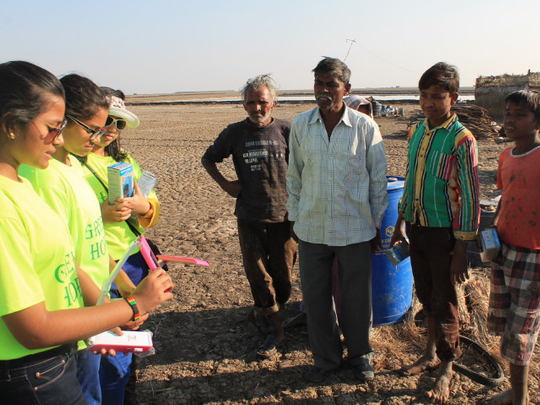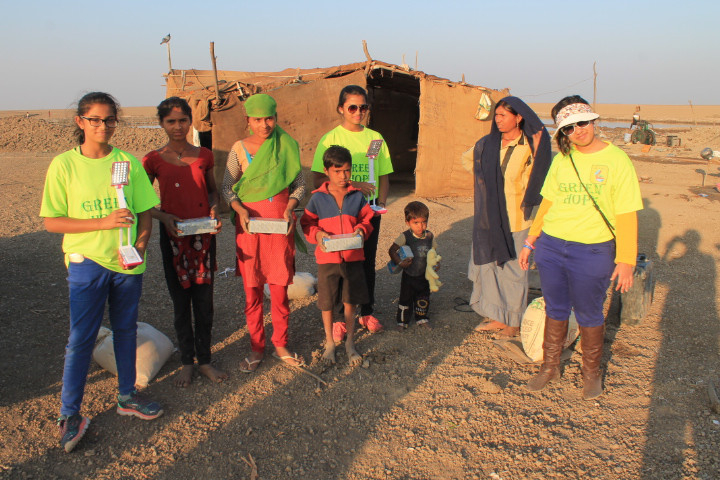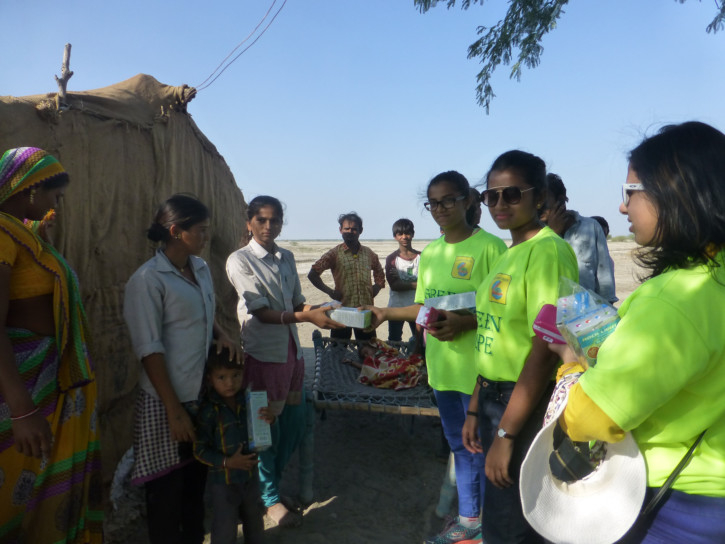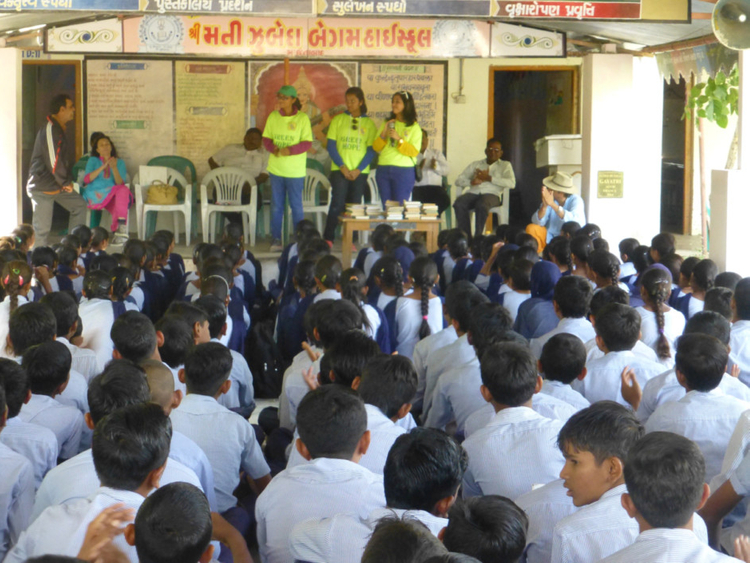
Dubai
The Rann of Kutch in the Indian state of Gujarat is one of the most desolate and arid regions in the world. It’s a vast, barren land of salt marshes with very little vegetation and means of subsistence. This arid landscape is one of the major sources of salt, not just for India, but for the world. Temperatures during the day soar to above 50 degrees Celsius, while the nights are bitterly cold. These salt marshes are home to migrant labourers called ‘agarias’ who toil in pitiful conditions to manually extract salt through natural evaporation of the sea water. They live in temporary shelters with no electricity, and trek on bare feet across this vast wilderness in search of work.
Green Hope, a Dubai-based youth organisation that works on sustainable development, believes in engaging all sections of civil society in the road to progress, especially those who are marginalised.
With this mind, a team of three Green Hope members collaborated with Cummins Middle East and travelled to Zainabad, a village on the edge of the salt pans of the Rann of Kutch. We carried cargo of 100 solar rechargeable lights and several boxes of books, to distribute to the children of the ‘salt farmers’.
In Zainabad, we were assisted by a prominent local business and social entrepreneur, Dhanraj, who had established a school for underprivileged children, including those of the salt workers.
The Green Hope team conducted a half-day workshop at the school, with the hope of spreading awareness on sustainable development goals, the current state of the environment and the important role of young people in mitigating climate change.
The team then ventured into the arid salt pans with a number of solar lamps. The huts of the salt farmers were spread far and wide across the vast Rann of Kutch, with each hut several kilometres away from the other. Each farmer’s family lives, works and tries to survive in isolation as they extract salt from marshes. The blistering heat of the sun and cold winds of the desert night, combined with constant exposure to corrosive salt, make every day of their lives a struggle.
Mortality is high and their children have little or no access to healthcare or education. Travelling across this harsh landscape, the Green Hope team went from one hut to the other, distributing solar lamps. Pragna said: “The look of joy on their faces as they saw the lamps light up, made our effort worthwhile.”
The team crossed several hundred kilometres, travelling deep into the night, reaching out to a hundred huts with these lamps.
Erin said: “Tonight, 100 huts across the Rann will light up. It is really fulfilling that we were able to bring a ray of hope into their lives.”
The next day, the team joined the children of Zainabad’s village school to plant 25 neem and jetropha trees to express solidarity with the Paris climate conference, for climate justice.
This project was Green Hope’s first step of using clean energy for the benefit of civil society and encouraged by its success, the team plans to build on it and light up the lives of all salt farmers in the Rann of Kutch.
— The reader is the founder of Green Hope UAE and is based in Dubai.
Be a community reporter. Tell us what is happening in your community. Send us your videos and pictures at readers@gulfnews.com











